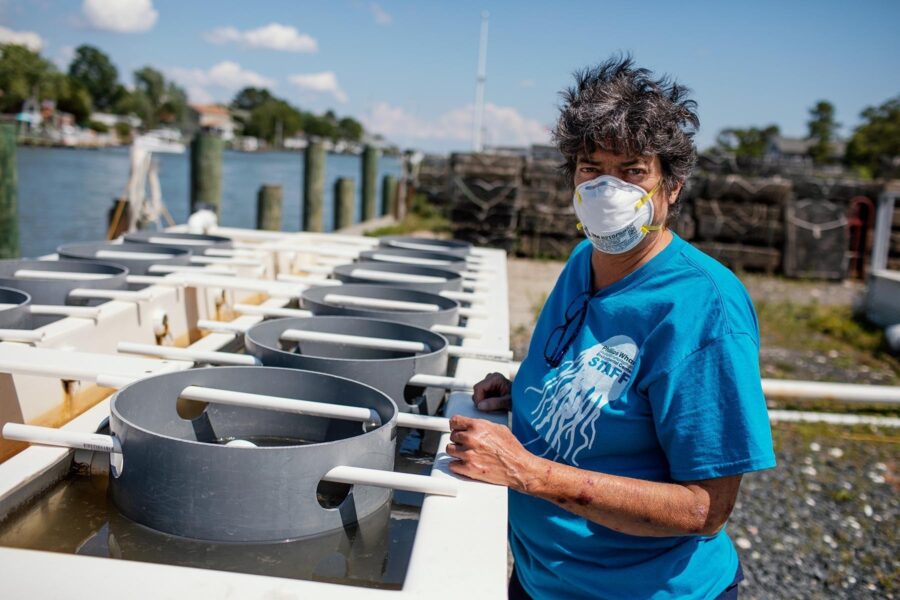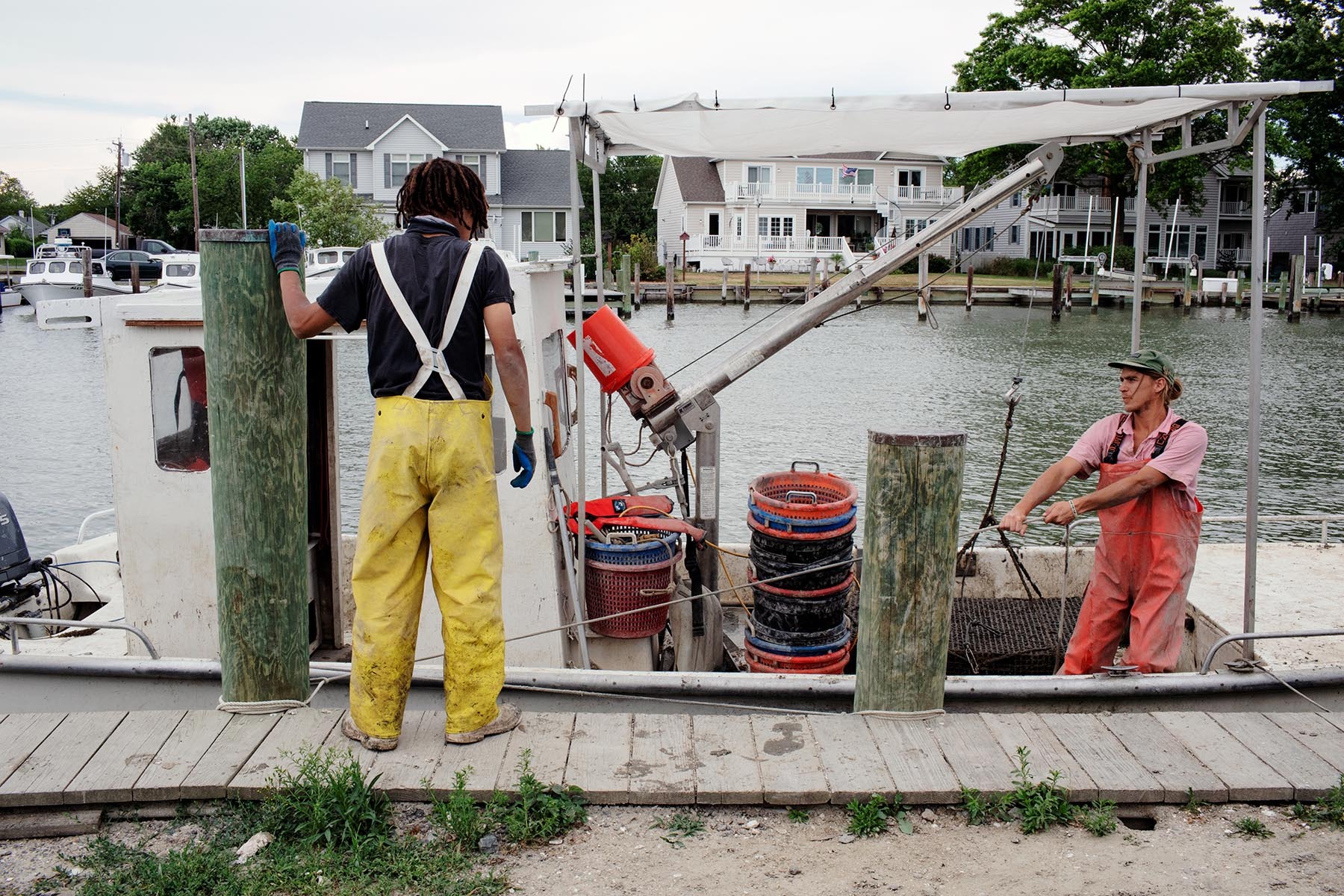Oyster farmer and educator plays a key role in sustaining a local island’s economy

On Maryland’s Eastern Shore, where the Chesapeake Bay and the Choptank River meet, is a narrow stretch of land named Tilghman Island. The island is home to a tight-knit community of people who harvest crabs, clams, rockfish, oysters and other seafood. Families began moving to Tilghman Island during a boom in the seafood industry in the late 1800’s, but today the vitality of the Bay’s commercial fisheries has declined and fewer residents are able to sustain their livelihoods by working on the water.
Among the local businesses striving to preserve the island’s seafood industry is the Phillips Wharf Environmental Center. Founded by Kelley Phillips Cox, the wharf provides environmental education, aquaculture job training, oyster seed sales, and events such as Oyster Jam and Tidy up Tilghman, all of which aim to sustain Tilghman Island’s seafood economy and cultural heritage. Cox’s work on the island is inspired not only by the hardships facing the community, but by the ones she herself has faced as a family member of five generations of watermen and women.
In 2003, Hurricane Isabel destroyed Cox’s family-owned seafood business. Cox responded to the devastation not by rebuilding the business, but by creating an organization that would provide educational opportunities for youth across the Chesapeake region. In 2005, this vision materialized with the founding of Phillips Wharf Environmental Center. After ten years of operation, Cox expanded the organization with the purchase of Talbot County’s last oyster shucking house. The oyster house now supports Cox’s own aquaculture business, Fisherman’s Daughter Oysters, which creates proceeds to fund educational programs.
In addition to Cox’s aquaculture business, the campus consists of a visitor center, aquarium with snapping turtles and terrapins and a garden with native plants. School groups tour the campus year after year to gain first-hand experience of the Bay’s unique ecosystem, while a school bus that Cox remodeled into a traveling aquarium (lovingly called the FishMobile) brings educational programs straight to the classroom. These programs have enriched the lives of many school children, providing Cox with a sense of purpose.
“I feel like even if I can affect just one child and they learn a little about the Bay to become stewards,” states Cox, “Then my job is done.”

Phillips Wharf’s also supports the emerging oyster aquaculture industry as a job training facility through its Tilghman Islanders Grow Oysters program. To support future generations of oyster growers and other men and women who work the water, Cox provides hands-on technical support and sells oyster shells with oyster spat already attached, saving buyers time and money. The program consists of a network of volunteer community scientists who are provided with oyster cages that contain baby oysters that can grow off the end of their waterfront or dock. Through this program, participants can learn more about oyster farming while adding oysters to the Bay.
Unfortunately, like many environmental educational organizations, Phillips Wharf is struggling due to the COVID-19 outbreak. While programs are usually offered throughout the school year and summer break, classrooms sit empty and Cox is currently looking for temporary foster homes for her turtles. Phillips Wharf is now preparing virtual programming for school programs in the fall and sending summer educational packets to students’ homes. With the outbreak, private funding has also decreased, which the wharf depends on to sustain its programming.
As always, Cox and her staff will have to remain resilient. Fortunately, resilience is a big part of who they and where they’re from.
To learn more about Phillips Wharf Environmental Center go to: phillipswharf.org/ or to volunteer with Tilghman Islander Grow Oysters go to: phillipswharf.org/help/oyster-restoration/

Comments
There are no comments.
Thank you!
Your comment has been received. Before it can be published, the comment will be reviewed by our team to ensure it adheres with our rules of engagement.
Back to recent stories